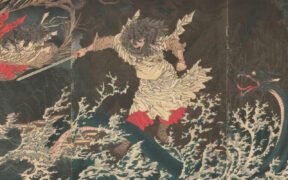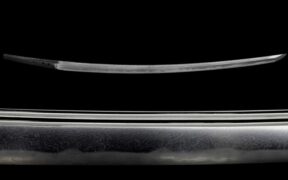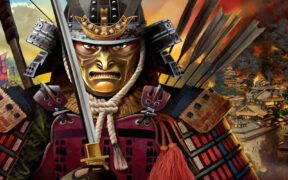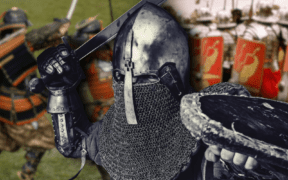Top 10 Famous Japanese Swordsmiths from History and Today
NO AI USED This Article has been written and edited by our team with no help of the AI
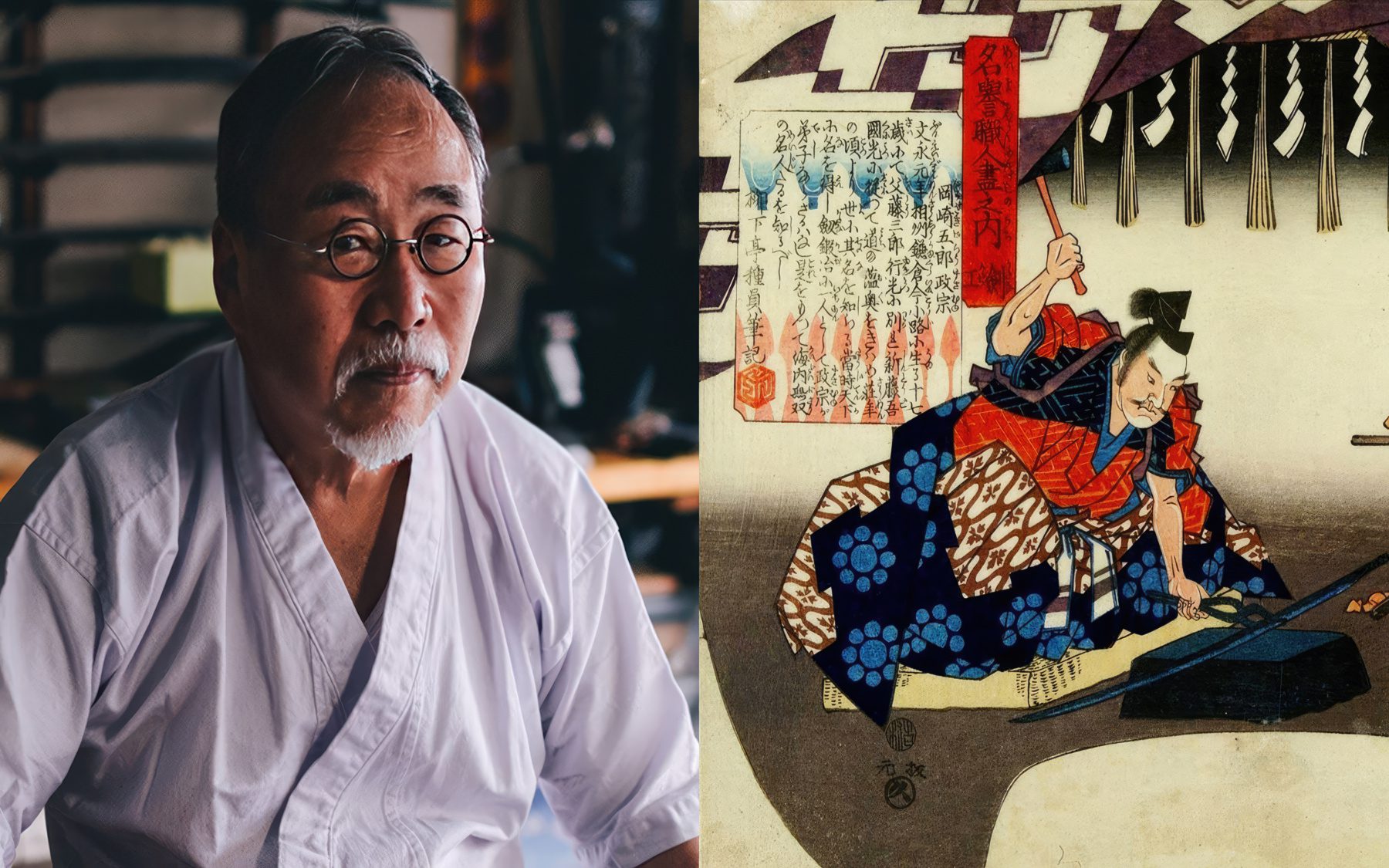
A Japanese Swordsmith (Katana-kaji) is an expert in forging Japanese swords (Nihonto). This tradition dates back to ancient times and has continued to evolve through generations of artisans. Forged from Tamahagane steel, swordsmiths use techniques such as quenching, folding to remove impurities, and adding mountings to create the katana.
This article explores the top 10 Japanese swordsmiths—starting with 5 master swordsmiths from the modern era and delving into 5 more from the past who helped shape Japan’s sword culture.
Famous Modern Japanese Swordsmiths
While Japanese swords are no longer used for combat, the art of traditional swordmaking is very much alive, with many modern swordsmiths producing high-quality blades. The following are some of the most famous Japanese swordsmiths from the 20th century.
1. Yoshihara Yoshino
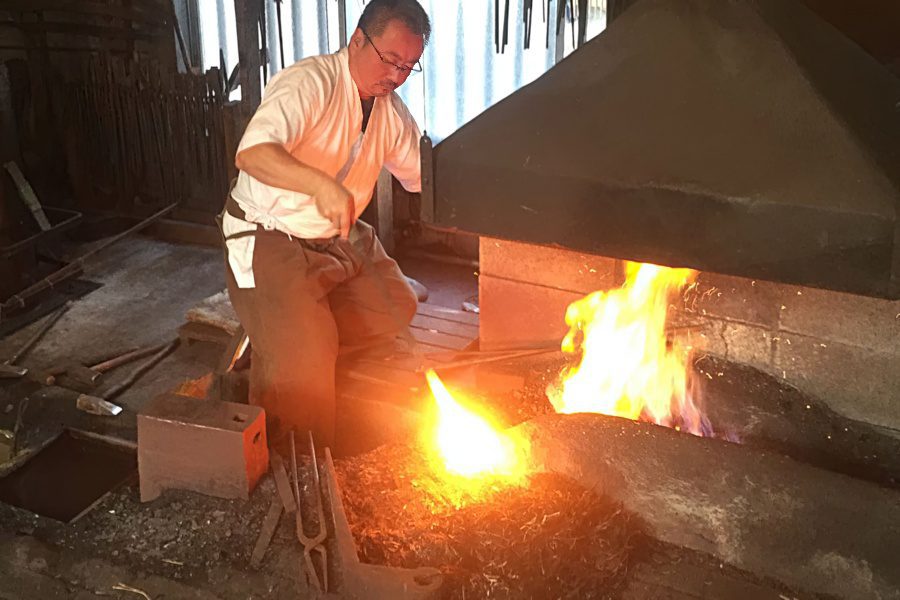
Born in 1943, Yoshihara Yoshindo comes from a long line of renowned smiths. He learned his craft from his grandfather, Yoshihara Kuniie, and his father, Masahiro Yoshihara.
Yoshihara began his career in 1965 and won his first award in 1972. Known for their exquisite craftsmanship, his swords often feature a choji midare (clove patterned) hamon. He later received the Takamatsunomiya Award, the highest honor at the New Masterpiece Sword Exhibition.
He is recognized as an important cultural property by the Tokyo Metropolitan Government and continues to create swords, some of which are displayed at prestigious museums such as the Metropolitan Museum of Art in New York.
2. Gassan Sadatoshi
Born into a family of swordsmiths, Gassan Sadatoshi is the president of the All Japan Swordsmith Association and is often credited as one of the best modern Japanese swordsmiths.
He is the current head of the Gassan school, known for their style that dates back to the Kamakura period and intricate ayasuji (straight grained) patterns. His swords are of an exceptional quality, a mix between art and a weapon. This makes him a possible contender for the title of “Japan’s Living Treasure.”
“I believe the Japanese sword is an art object. It is a symbol of spirituality”, says Gassan when describing his swords.
3. Akitsugu Amata
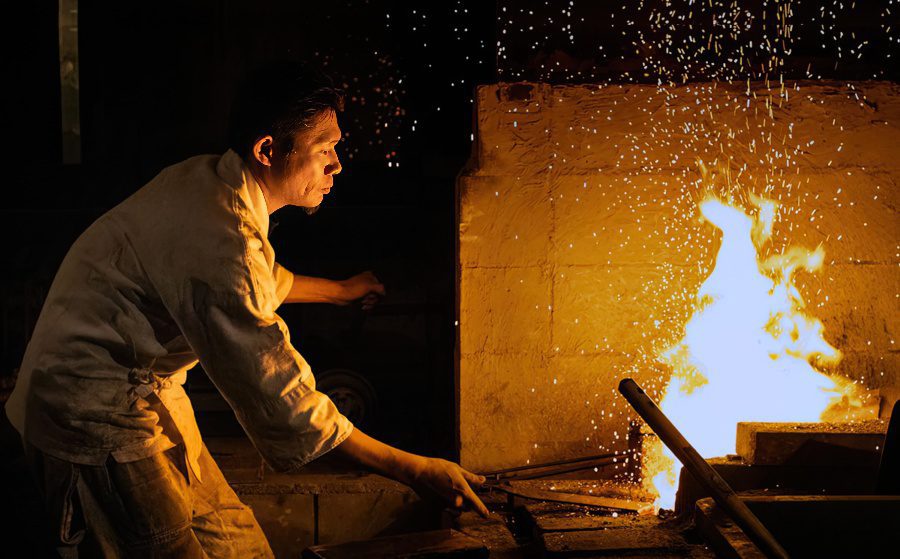
Akitsugi Amata was a modern Japanese swordsmith who began forging swords around the age of 13 or 14. Growing up under the tutelage of Kurihara Hikosaburo, a master at a specialist sword-making school, Akitsugi’s swords are some of the highest quality today.
Post-World War II due to restrictions by the American forces, he had to stop producing his swords but eventually obtained a license after 1954 and continued his craft. Since then, he has won many top awards, and in 1997, he was recognized as a Living National Treasure of Japan for his craftsmanship and for keeping the samurai sword culture alive.
4. Masamine Sumitani
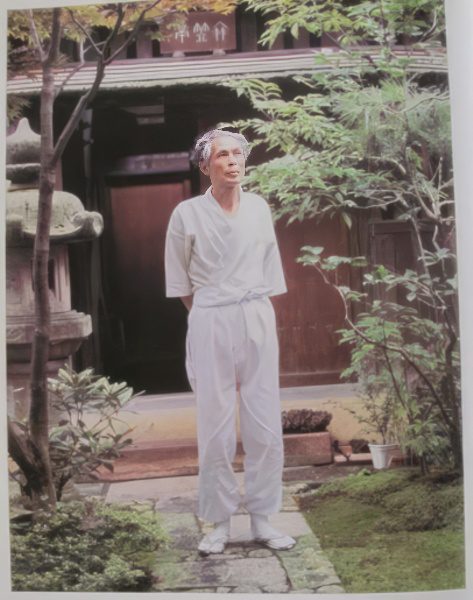
Although Masamine Sumitani’s family was in the business of producing soy sauce, he chose to craft swords instead. Under the guidance of Sakurai Masayuki of the Bizen sword school tradition, he became one of the best modern sword crafters.
Masamine has earned him the title of mukansa, a position for sword crafters ranked only in the top few. His continued craftsmanship led to him being recognized as a Living National Treasure in 1979. He is distinguished in making katanas and tanto knives with choji midare, a clove pattern hamon that is extremely hard to achieve.
5. Ono Yoshimitsu
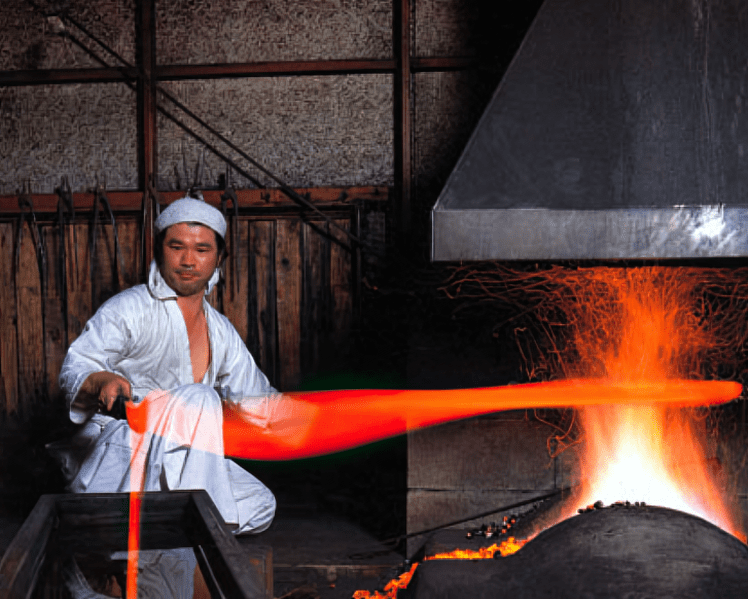
Born in 1948, Ono Yoshimitsu having received tutelage from Yoshihara Yoshindo, is regarded as one of the best Japanese swordsmiths today. He holds the title of mukansa, a top-tier designation, and many consider him a likely future National Living Treasure.
He has won numerous awards since 1975 and in 2012 was designated a cultural asset in Katsushika Ward. He is known for his complex saka and juka-choji midare hamon.
Famous Japanese Swordsmiths from History
Finding the best Japanese swordsmith from history is very challenging as there were many sword schools, each with their own specialty that contributed to the Japanese sword.
Markus Sesko, a leading research expert on Japanese swords says, “From a mere technical point of view, it is next to impossible to say if there was one ‘greatest’ swordsmith, as the country brought forth so many great master smiths over the centuries.”
The following are the 5 most famous smiths that are considered some of the greatest.
1. Goro Nyudo Masamune
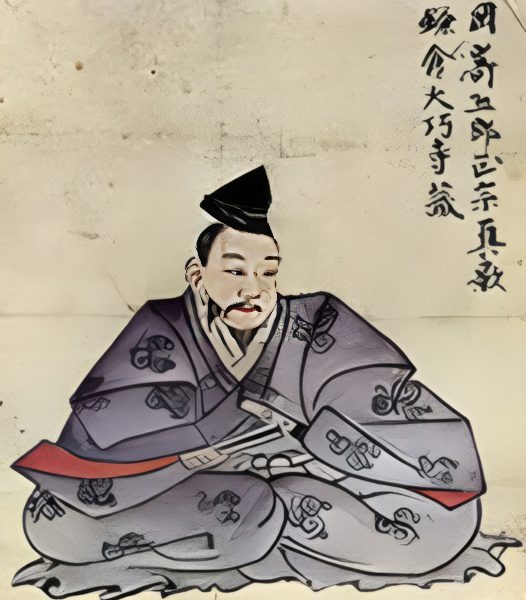
Goro Nyudo Masamune, often simply known as Masamune, is renowned for his significant impact on the history of Japanese swords, having perfected weapons such as the tanto, tachi, and others that have been turned into katanas. There are many legends suggesting that his swords can cut through anything.
He crafted swords in the Sagami province during the late Kamakura Period. He perfected his craft under other masters and passed down his skills to the Soshu school of swordsmithing. His style has since been replicated by many subsequent wordsmiths.
2. Sengo Muramasa
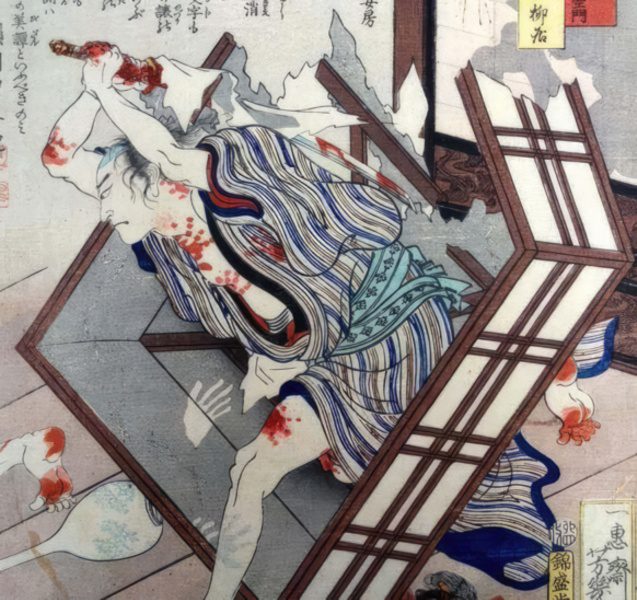
Sengo Muramasa is another renowned Japanese swordsmith who crafted some of the highest-quality swords during the Muromachi Period. His swords, widely used in battles, gave rise to many legends.
Since stories depict his katanas as wicked and cursed, some suggest that his swords could make their owners lose their minds, giving birth to the legend of the Cursed Katana today.
3. Amakuni Yasutsuna
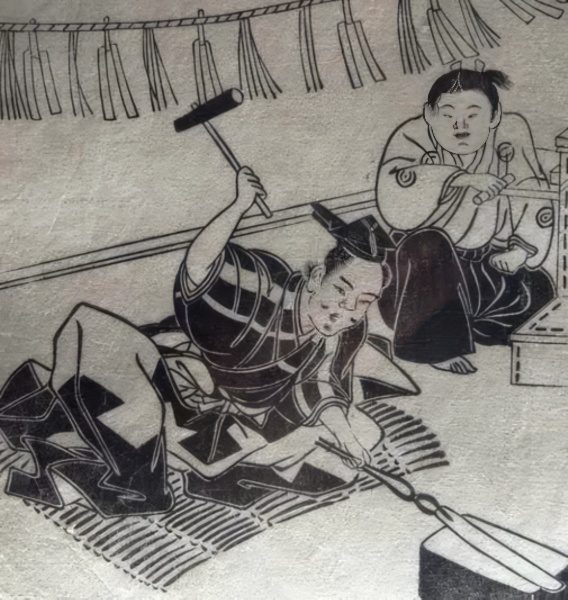
Amakuni Yasutsuna is a legendary swordsmith often credited with creating the first curved Japanese sword—the tachi. While his life is shrouded in mystery, he is believed to have lived in the Yamato Province around the 7th to 8th century.
His name is accompanied by many legends, one of which says he aimed to build the perfect sword for his emperor. He and his son prayed to the Shinto gods for seven days and nights, collected the best iron sand ore, and refined it into a sword.
4. Hikoshiro Sadamune
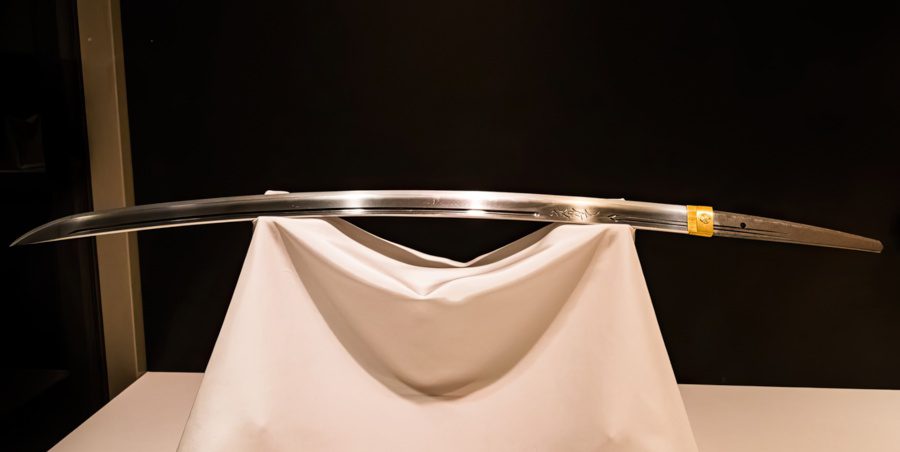
Hikoshiro Sadamune, a student of Masamune, is recognized as one of Japan’s most esteemed swordsmiths. He is believed to have kept Masamune’s legacy alive. Some researchers even argue that his craftsmanship exceeded that of most other smiths in history.
He crafted tachi blades that incorporated the early elements of katanas. Just like those of his master, Masamune, his blades were later modified into katanas.
5. Shizu Kaneuji and Kanenobu Clan
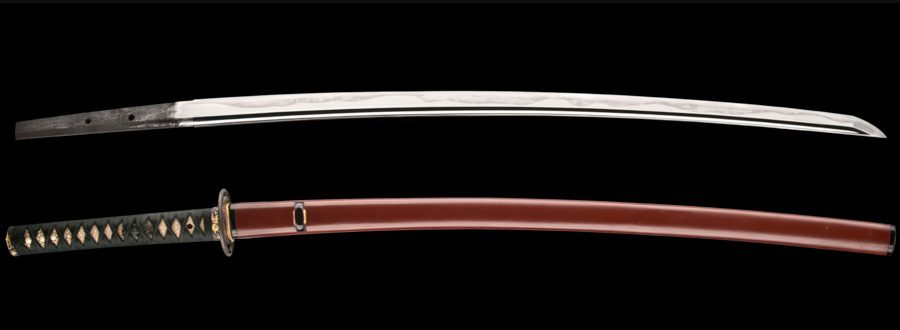
Both the Kanenobu clan founder and his clan are renowned in Japanese swordsmithing as a sword school that has created various types of samurai weapons including katanas, wakizashis, and spears that have lasted for possibly over six centuries.
Their founder, Kaneuji, was said to be a student of Masamune. He established his own school, and from the Edo Period forward, his students became leaders in the field with famous swords that are often featured in anime and media today
